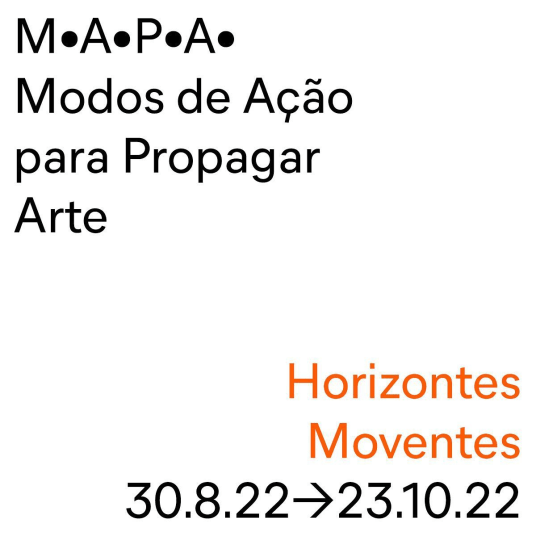Which representations, symbols and allegories of Brazilianness have prevailed throughout history in the collective imagination? What role did these representations play in the Brazilian political conflicts? How can culture contribute to the formation of a fluid and diverse notion of identity? These are some of the questions that propel the exhibition Moving Horizons. In its second edition, the M.A.P.A. Project displays, in 27 billboards located in the 27 capitals of Brazil, works by active artists in the most diverse areas of culture – in an extension that goes beyond geographic boundaries and unfolds in unique poetic experiences created especially for the public space.
The concern around the notion of identity is a recurring subject throughout history in Brazil. It is a so-called classic theme for those who have faced the task of thinking about this country. The need to review the narratives that forged symbolic constructions of Brazilianness from compacted and discriminatory assumptions has, over the years, echoed and found dialogue – an achievement including versions that sometimes converge, sometimes shock against each other. In this sense, it is important to understand identity as a representation that is expressed not as concrete data, but as a symbolic construction built in relation to a diversity of ethnicities, religions, genders or classes.
Recognizing that art is inside this complex and rousing force field, Moving Horizons is conceived as a poetic action that inquires into the topicality of this debate, bringing new questions. Along with them, there is the inscription of other possible horizons of representation that can glimpse multiple existences, affections and drives, giving the notion of identity its most perfect impermanence.
The invitation to have the city as a space for imaginative exercises stems, therefore, from the need to prioritize an affective, resonant, lyrical Brazilianness, desirous of the possibility to compose other human relationships and logics, through different forms of confrontations and visualities. As a place of gathering, confronting and, mainly, dialoguing, the public space is set as an open and fertile field for a notion of identity, in its plural form, to be enunciated.
By using a billboard as a support for this artistic production, the M.A.P.A Project intends to destabilize its logic of commerce, advertising and electoral platform – which frequently uses this media – to articulate another imagery frequency. And, thus, it may awaken the unready subjects in their routines in the city, deconstructing the utilitarian perception of public space by involuntarily converting them into observers. The promotion of unusual forms of expression seeks to re-signify everyday life, turning the street into a space for action and resistance.
Patricia Wagner (August/2022)
